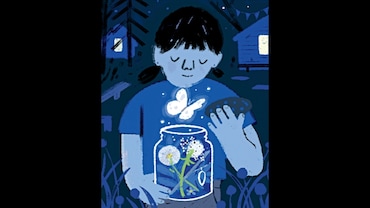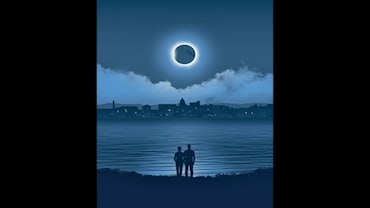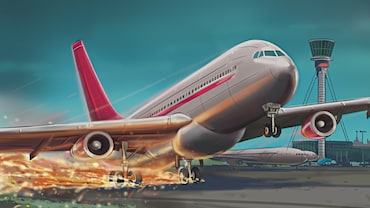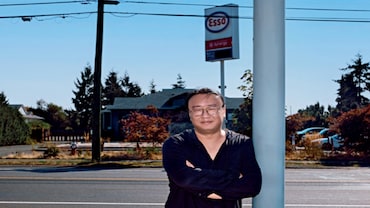Memoirs Of A Veteran Journalist
Between the editors and the lower species on the same floor, innumerable career anecdotes are passed on from one generation to the next. Not quite the stuff of literature; not just stories either. I have collected a few. My working life began as a schoolteacher sometime in the 1940s

First Shock
In 1947, I at last got an interview with the legendary S. Sadanand, founder-editor and proprietor of The Free Press Journal, which had its offices at Bombay's Dalal Street.The boss: "I can sack you in a week if you don't make the grade." I: "What if I make the grade?" D. N. Nadkarni, the general manager, looked up. Sadanand had no reply for a while. Then he broke the silence with "I shall make you my editor, my boy."No one talked to Sadanand so lightly during an interview. The standard reply was "get out," but in that unusual moment of cogitation, Sadanand continued: "When can you join?" "Just now, sir." "Come and see Natrajan tomorrow," I was told.I came early to meet S. Natarajan, the FPJ editor, who pushed me on to a strange character called A. Hariharan. No welcome, nothing about my appointment. He simply called a proofreader and asked him to look after me for a week. In other words, I, who was hired as a sub-editor, had been underemployed as a proofreader. Later I found that this was generally the treatment meted out to all those young people whose face Hari never liked.
During the course of the week, I met M.V. Mathew, a pleasant khadi-wearing man. "Hey Nair," he said, "why are you cooped up with the readers?" That evening he went to Natarajan and released me from the unholy imprisonment and took me in on the news desk.
The King and I
It was one of those busy nights. I was "subbing" away without a pause. Suddenly, I find behind me an old trusted friend, Mr V.K. Thomas. "You are going to Ethiopia as a teacher," Thomas whispered in my ear. He had apparently completed all the procedures and I only had to collect the appointment letter. No use arguing with Thomas! I sent in my resignation to Mr Natarajan. By 15 January 1948, twenty-four Indian teachers had landed in Ethiopia. Immediately after freedom from the Italians, Ethiopia was on the brink of collapse. Emperor Haile Selassie was waging a brave war to modernize it.
Despite all the teaching in Ethiopia, the journalist in me always secretly eyed a potential story. I had planned a haircut in a particular salon just because it was open on a Saturday. There, someone tapped my head and when I turned around, I saw the white-robed emperor. I shot up and almost lost my balance. The custom was that anyone meeting the emperor bowed three times. Having gone through the ritual with great respect, the emperor looked at me.
"Hind astamari?" [Indian teacher?], he asked. I almost touched the ground responding "Ishy" [yes] in Amharic. "Which school?" By now the Greek barber, who'd for years cut Haile Selassie's hair, was translating."Casa Inches," I replied. It was an important school then. "All well?" the emperor asked to which I quickly responded saying that everything was fine. "How are the students?" "They are very intelligent," I said. "I wish you all the happiness and good wishes," said the emperor. I then mustered enough courage for a question: "Are more Indian teachers coming?" The emperor half-smiled, said "Let's see" and moved on. This one question made my brief "interview" acceptable to newspapers, including FPJ and The Hindustan Times, back home.
Back at FPJ-More Shock!
I had decided to end the Ethiopian experience after my two-year contract ended. This meant I was back job-hunting in Bombay, and my trips to The Free Press Journal became a weekly affair. One afternoon as I was climbing the stairs, I met Senior Assistant Editor S.A. Sabavala. "Arre, Nair, you are the barbershopwalla. Are you looking for a job here?" Sabavala asked.
"Very much, sir," I said. Sabavala took me to Sadanand. Thus began my second FPJ innings.
One day, around 3pm, Sadanand summoned me and asked point blank how many "lunch places" my immediate boss, M.V. Kamath, usually went to? "Sir, I have no clue," I said, flabbergasted.
The newspaper publishers' meet is to be held tomorrow in Calcutta," said Sadanand. "Since I've been warned by my doctor against going, I had hoped to send Kamath. But he can't be traced." Sadanand asked me to make an alternative arrangement. Since Indian Airlines permitted passenger name changes only up to 4pm, I asked O.P. Samuel, our circulation manager, to go instead of Kamath. Samuel was pretty stressed out with his wife due to give birth soon. I assured them that a Free Press car would be at her door till Mr Samuel returned, although both would-be-parents were difficult to convince.
The flight was to land in Calcutta around 5am via Delhi. Finally, Samuel agreed to go and the airline accepted his name as the substitute. M.V. Kamath then walked in and explained that he was presiding over a journalists' union meeting. Sadanand was unimpressed and Kamath got quite an earful.
Samuel boarded the flight, which proceeded to fog-engulfed Calcutta. When Sadanand went to the washroom around 5:30am, the PTI news agency ticker at his home sprang to life. On reading its contents, Sadanand collapsed. The ticker read: INDIAN AIRLINES PLANE CRASHES IN CALCUTTA, REPEAT CRASHES. ALL BODIES CHARRED BEYOND RECOGNITION. Any of us could have been on that ill-fated plane. Sadanand, shattered and weeping, did not work for a few days. But then, as they say, life goes on, though the entire office felt a sense of guilt. And Sadanand was a broken man. Tough BossThe Free Press Journal was making good progress. Sadanand, despite his poor health, stood his ground when the paper needed a strong stand. The detailed coverage of the 1946 naval mutiny, day after day till it ended, added a glorious chapter to journalistic history. Immense credit goes to Sadanand as a patriot and a journalist who had opened a new front in the fight against the British. Unfortunately, Sadanand attracted the ire of Sardar Patel, which in turn affected the paper in many ways.Sadanand was a born fighter. Take for example his clash with Abid Ali, a Bombay cabinet minister, whose family member was involved in an undesirable act with a foreign girl. The Free Press Bulletin, the group's evening paper, reported it in garish detail. The report also hinted, perhaps appropriately, that the minister failed to discipline his family member. Abid Ali threatened to sue Sadanand, who would have none of that and warned Ali that every time the case came up in court, The Free Press Journal would make it the lead story with all details. Abid Ali's end of the telephone fell silent. Therein ended the threat.
New Venture
By the early 1960s, a few senior Free Press editorial staff, including me, planned to start a new daily, if only to find out whether experienced journalists could run a newspaper. The plan was to sell shares to employees of the central government and private firms, and other potential readers. Union leaders like George Fernandes supported the project. The enthusiasm was great. The others connected with the launch of Newsday included journalists like A. Hariharan, K. Sivram, cartoonist Bal Thackeray and M.P. Iyer. Thackeray and I were good friends. In the FPJ office, I used to watch him give finishing touches to the day's work. Simple ideas and meaningful black lines gave a unique power to his cartoons, which were invariably in the common people's idiom. Bal was also a consummate mimic. He used to regale staff members during the lunch hour with his mimicry. S.K. Patil, the many-time mayor of Bombay, was his pet target.
One Thackeray cartoon had to do with Russian leaders Nikita Khrushchev, then first secretary of the Communist Party of the Soviet Union, and Nikolai Alexandrovich Bulganin, the Soviet premier. The two travelled together to India, Yugoslavia and Britain, where the media referred to them as "the B and K show." It is said, the Bulganin beard is named after him. The day the Russians arrived in Bombay in 1955, Thackeray's cartoon showed Khrushchev and Bulganin sitting in an Irani restaurant and asking for two cups of chai and "Aaj ka Newsday."
Anyway, none in the new group had any experience handling financial problems in a newspaper. The real reason why Newsday collapsed in about 18 months was that after the first flow of funds-rather meagre in any case-financiers like office clerks and government employees could not provide more monetary support. Add to that, the day the government took action against some government employees for striking work, the paper came out with an editorial condemning the strike. That morning workers burnt copies of the paper at Flora Fountain and other places in Bombay.
The first to resign were Thackeray and myself. Many supporters of Newsday came to the office to protest against the morning's editorial, whose writers perhaps thought their views would please those who had promised big money. But that never happened and it was the end of what was the first co-operative English daily owned by its readers.
A Minister for Lunch!
It was in October 1962 that some fellow journalists suggested we host a lunch for Defence Minister V.K. Krishna Menon at "M.K.B. Nair's place" because it was a new flat. After Mr Menon's confirmation, policemen were deputed to maintain a constant vigil around my small flat. As soon as he reached my home in Bandra East, his secretary came and whispered into my ear, "Bath." It was Mr Menon's custom to bathe as soon as he reached a new house. The secretary rearranged everything in the bathroom and took Menon there. In ten minutes Menon was back wearing a new dhoti, kurta and angavastra. Having comfortably sat down in the drawing room, he put his head on the holder of his walking stick and sat looking down, assuming the attitude of someone who was very worried. He was also impervious to the presence of journalists in the room. No matter what questions they asked, he sat mute without even looking up-rather unbecoming of a defence minister. The secretary came back again and whispered something to him, whereupon Menon got up wiping his forehead with his angavastra. The lunch had begun, but Menon had no interest in the food. He tasted a little bit of avial and pachadi [both Kerala dishes] and nothing more. When I requested him to have a little rice, he told me he had not eaten rice for twenty years, adding, "But I like your avial and pachadi." When I served a little more he raised his hand to show he'd had enough and got up to wash his hands.
Menon then assumed the old posture, his head resting on the walking stick. Then, after ten minutes, he got up, shook our hands and thanked us. As he walked up to the door he saw a young lady, a friend's wife who had come to help out, in the kitchen and assumed that she was the hostess. He thanked her for everything several times and went out. I accompanied him to his car, where he said he was going to address a fishermen's meeting at Juhu. These were his only significant words during the entire visit. His other concern was to remind his secretary to buy the best umbrella available in Bombay for his cook in Delhi.Later that day, several journalists said there were rumours of border skirmishes with the Chinese. That was why Mr Menon was considerably disturbed, refusing to talk to journalists. Next morning's papers reported that China had crossed the border and inflicted heavy losses on the Indian Army.
The Fourth United Nations Conference on Trade and Development (UNCTAD) was held in 1976 in Nairobi, Kenya, and Nair, then News Editor of The Economic Times and not a regular reporter, was sent to cover it. This was in the midst of the draconian Emergency, when Prime Minister Indira Gandhi had imposed press censorship, and any journalist who upset her was unsafe.
One big Scoop, No Mole
The secretary-general of UNCTAD was Dr Gamani Correa, a highly respected economist from Sri Lanka, with degrees from Cambridge and Harvard. He had chalked out a far-reaching economic and social program in which the core idea was a Common Fund of a billion dollars to protect farmers of the developing nations from distress sales of their produce, which created a lot of havoc all over the Third World. The Fund was expected to aid these farmers in collaboration with their governments.
Many well-known economists and politicians addressed the news correspondents. Most representatives of the developed countries argued for individual negotiations with the farmers and totally ignored the Common Fund. A former US secretary of state made a scathing attack on the Fund, arguing that the farmer who produces his crops jolly well knows how to sell them.
The conference entered its third and penultimate week with a lot of absenteeism among the delegates from the developed countries. It was on one such dull Thursday that I followed Secretary-General Correa as he walked out for lunch. He entered his car, and as he tried to roll up the glass, I said, "Sir, your Common Fund scheme appears to have completely failed." He looked furious and was almost shivering with rage. "You are the most ignorant chap on the whole UNCTAD campus," he shouted. He opened the car door and came out. I even thought he might physically attack me. "You don't seem to know a thing about the Common Fund and it is unfortunate that you are reporting on it." Then his face became kindly and he said, "Do you know what your Prime Minister did last night? She woke me up at midnight and donated a moderate sum as India's share towards creating the Fund. This was the first donation and I thanked the lady profusely. Since then, more than one-third of the fund has been collected. And here you are telling me that the Common Fund has failed!" Dr Correa then winked at me and smiled as he got into his car saying "Nair, you have a scoop. I have not told you anything. And I never will tell you anything." I ran to the pressroom and began pounding a typewriter. When a paragraph was ready, a teleprinter operator would come and take it. When I finished all the fifteen one-para pages, I rushed to call Dr D.K. Rangnekar, editor of The Economic Times. He was extremely happy. "Nair, keep every bit of paper on which you have written this story," Dr Rangnekar warned. "There could be problems because this concerns the Prime Minister and her office."As soon as The Economic Times appeared that Friday morning, all hell broke loose in Delhi. Prime Minister Indira Gandhi was furious. She wanted to bring to book anybody who dared to flick a very important decision from her office about which only she and her personal secretary were aware. "That Nair in Nairobi has a mole in New Delhi," Mrs Gandhi asserted, "I must have the truth about this whole affair!"
Mr Sharada Prasad, the PM's press advisor who knew me well, was summoned to her office. The furious Prime Minister told him to stop everything and to organize a search of The Economic Times offices in Delhi and Bombay and to bring the concerned correspondent to Delhi as soon as he lands in India. "I shall question that guy myself." It is said that a posse of policemen entered the New Delhi office of The Economic Times, but another version has it that they only came up to the gate.
Dr Rangnekar called me up in Nairobi and said, "Your story has created quite a sensation both in Delhi and Bombay. The Prime Minister was bent upon taking action against you and me." Her embarrassment was borne out of the fact that she had told an outsider about India's proposed contribution, even if it was the UNCTAD secretary-general, before informing Parliament. My editor and I decided that we should never reveal our source, no matter what.
By the last day of the conference, my problem was to express my heartfelt gratitude to Dr Correa. I waited for the secretary-general's dinner, where in the goodbye queue I simply stood in front of him with both hands folded. He cut it short, praised "India's unique form of goodbye," patted my shoulder and quickly dealt with the next correspondent in the queue. The next day I was back in the Bombay office and walking along the newsroom corridor when I received a standing ovation. I shook hands with almost everybody. Dr Rangnekar met me in his office. "Would you like Bombay or Delhi?" he quipped.
At around 5pm that day, Mr A.N. Prabhu, the chief of our New Delhi bureau, called me. "All quiet on the Delhi front," he said, adding that Mr Sharada Prasad had helped diffuse the crisis. On the third day Prabhu called again and said New Delhi was cool and nobody was talking in the Prime Minister's office about any "mole" or the source.At last a sigh of relief for Dr Rangnekar and me. I have just revealed the 36-year-old secret of my source.
Editor's note: S. Sadanand is remembered as a fearless freedom fighter. A maverick and a brilliant editor, he grew his Free Press Journal to great heights and inspired a whole generation of journalists. He died at age 53 in 1953.M.V. Kamath, who by a quirk of fate missed taking that ill-fated plane to Calcutta in his youth, became a long-time US correspondent of The Times of India, and editor of The Illustrated Weekly of India. He also wrote several books and led an active life till his death at age 93 last year. Free Press Journal cartoonist Bal Thackeray went on to found his political party, the Shiv Sena, in the 1960s and launch his own Marathi weekly Marmik and the daily Saamana, continuing to be a cartoonist and editor. He died, aged 86 in 2012. M.K.B. Nair held several senior positions, including that of resident editor in The Economic Times, until his retirement in April 1990. He then worked as a director at Bharatiya Vidya Bhavan, teaching and conducting its journalism courses. Today, at age 90, he lives in Mumbai with his wife Dr Krishna Nair.






